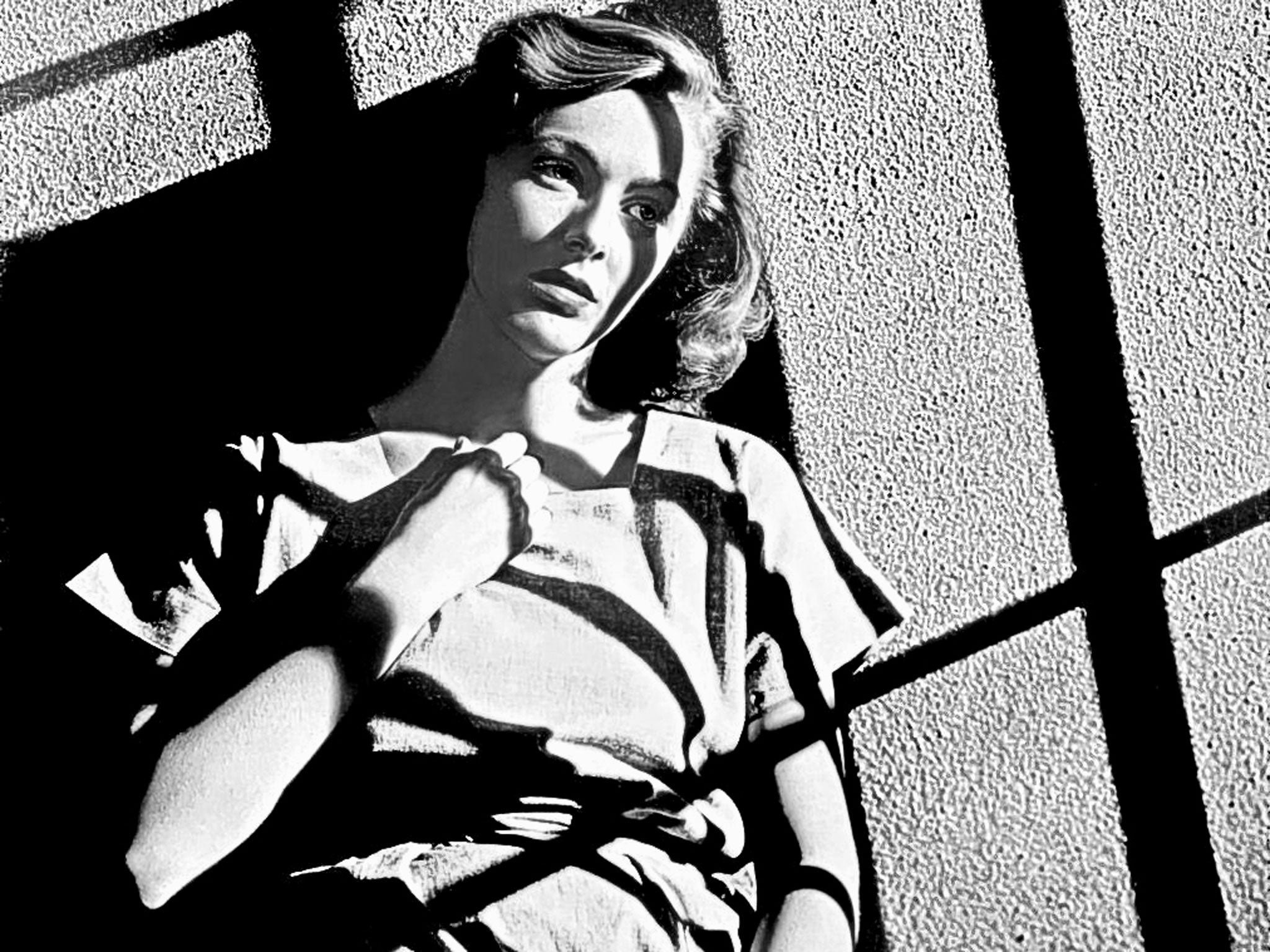Eleanor Parker: The Baroness in 'The Sound of Music' who specialised in playing characters who were sad, flawed or despicable

Eleanor Parker was an actress of patrician beauty nicknamed "the woman of a thousand faces" for the range of parts she played, from a terrified prisoner in Caged to the lovelorn, scheming baroness in The Sound of Music. She was nominated three times for an Academy Award, but if she is not remembered with the instant recall of a Bette Davis or Joan Crawford, it may be because she was not entirely comfortable with film-star stereotyping.
"I'm primarily a character actress," she said in 1988. "I've portrayed so many diverse individuals on the screen that my own personality never emerged." In more than 45 films, she often used wigs, make-up and convincing accents to play characters who were sad, flawed or downright despicable. In his New Biogaphical Dictionary of Film, David Thomson described her as "an actress most celebrated for her wound-red hair and the ability to bring a rueful, shrewish feeling to 'the other woman'."
A ravishing brunette, then a blonde and later a redhead with a husky, sultry voice, she exuded sex appeal in such films as Pride of the Marines (1945) with John Garfield, Scaramouche (1952) with Stewart Granger and Escape From Fort Bravo (1953) with William Holden. In The Naked Jungle (1954), she is the mail-order bride who intimidates a virginal South American plantation owner played by Charlton Heston with her sex-charged repartee. "The piano you're sitting at was never played before you came here," Heston says at one point. "If you knew more about music," she replies, "you'd know that a piano is better when it's played."
She was the sluttish waitress Mildred Rogers in Of Human Bondage (1946), winning rave reviews though the film bombed. In The Man With the Golden Arm (1955) she played the needy and deceitful wife of Frank Sinatra's former drug addict struggling to stay clean.
One of her most heralded but least seen performances was in Lizzie (1957), a film about a woman with multiple personalities. The film had the misfortune of being released the same year as The Three Faces of Eve, which was heavily promoted to advance the career of newcomer Joanne Woodward. Still, Lizzie remained a powerful and convincing portrayal of three separate identities in one body, a pathologically shy museum worker, a lusty barfly and a well-adjusted woman. Instead of relying on film-editing tricks, Parker showed subtle but convincing shifts in character in view of the camera. The critic Judith Crist called Lizzie a "neglected but fascinating" film that "boasts a stunning performance" by Parker.
To play the polio-stricken opera singer Marjorie Lawrence in Interrupted Melody (1955), Parker had to memorise 22 arias in 10 days, locking herself inside a mountain cabin to do it. Although Eileen Farrell dubbed the vocals Parker needed to mimic convincingly in a foreign tongue. She said later she had no idea what she was singing.
She was born in 1922 in Cedarville, Ohio, and raised in Cleveland Heights. She was a veteran stage actress by her late teens and turned down early screen test offers, once to finish high school, another time to study at the Pasadena Playhouse in California. She then signed with Warner Bros and served her apprenticeship in low-budget crime and suspense films.
Gradually, she won ingenue parts in major productions, including Michael Curtiz's Mission to Moscow (1943) starring Walter Huston. She became a leading lady as the wife of a crippled concert pianist (Paul Henreid) in Between Two Worlds (1944) and Pride of the Marines as the wife of a blinded Second World War hero (John Garfield).
In 1950 she starred in Caged, for which she received her first Oscar nomination, as best actress. She played a woman unjustly sent to prison, where she is abused by a prison matron and hardens to the environment. Her second came the following year for Detective Story, in which she harbours a secret that may destroy her husband, a crusading policeman (Kirk Douglas). Her final nomination came for Interrupted Melody.
Parker's career was in the doldrums when director Robert Wise, who had worked with her on Three Secrets (1950) and admired her portrayal of cool reserve, cast her in The Sound of Music (1965) as Baroness Elsa Schraeder, who competes, unsuccessfully, with Maria for the heart of Captain von Trapp.
She also worked in television, winning the 1963 Emmy Award for outstanding single performance by an actress on the medical drama The Eleventh Hour. She played a woman whose fear of men leads her to drink and have hallucinations. Onstage she replaced Lauren Bacall as Margo Channing in the touring company of Applause, based on All About Eve. A 1972 Washington Post review wrote that her intelligence and discipline proved "a deeper revelation than Miss Bacall's original achieved."
Perhaps the greatest notice of all had come years earlier, when a gossip columnist did not even recognise the versatile actress when she dined out. "Who was that attractive girl with Eleanor Parker's husband last night?" the columnist wrote. Her marriages to Fred Losee, producer Bert Friedlob and portrait painter Paul Lewis Clemens ended in divorce. Her fourth husband, the businessman Raymond Hirsch, died in 2001.
Eleanor Jean Parker, actress: born Cedarville, Ohio 26 June 1922; married 1943 Fred Losee (divorced 1944), 1946 Bert Friedlob (divorced 1953; two daughters, one son), 1954 Paul Lewis Clemens (divorced 1965; one son), 1966 Raymond Hirsch (died 2001; one stepdaughter); died Palm Springs, California 9 December 2013.
© The Washington Post
Join our commenting forum
Join thought-provoking conversations, follow other Independent readers and see their replies
Comments
Bookmark popover
Removed from bookmarks